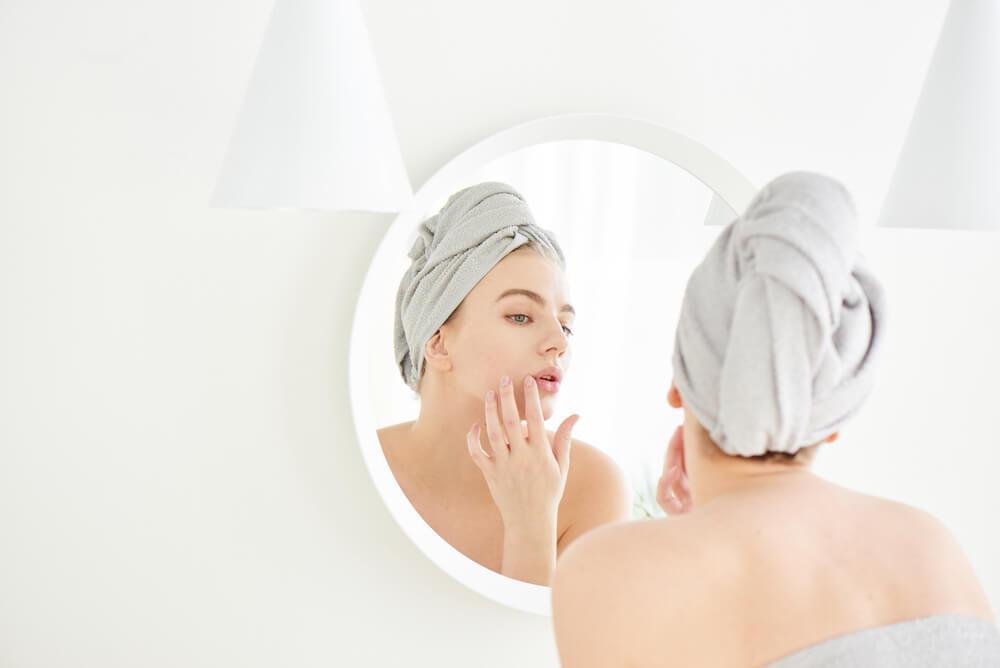
Is that another zit? How could this be happening?
Many of our have had this conversation with our reflection in the mirror in the past couple of months.
The stress and the fear of the unknown due to the pandemic have caused different health problems for all of us. Rashes, breakouts and other skin conditions have almost become an everyday thing.
The reasons behind the problems with the skin in the time of the pandemic are many, but among the main culprits is, for sure, comfort eating.
Can Comfort Eating Really Cause Breakouts?
Well, that depends on who you ask, but mostly (and sadly), the answer is simply – yes. Yes it can.
Many of us had some really intense emotional struggles these past few months. And, some of us also tried to deal with them by eating enormous amounts of food.
Yes, we are looking at you chocolate. The divine cure for many a struggle of the soul. Chocolate, pizza, tons of burgers, ring any bells?
Little did we know that, while we were feeding our soul, we were creating a breeding ground for many skin problems, acne being the most persistent.
Covid-19 has brought a period of intense stress which led to people staying at home, dealing with whatever emotional problem they had alone.
And, in that case, of course the fridge was going to become the source of refuge!
Yes, sure, we took isolation seriously and actually started to work on projects we never had time for before. We exercised, we ate healthy foods, we read. Fast forward to a couple of months later, here we are, binge-watching a series on Netflix, devouring a second bucket of spicy wings.

This was bound to happen.
To be honest, people who succeeded in actually finishing anything in the time of the pandemic should be awarded medals! The stress levels, the constant everyday pressure would break a rock, let alone a human being with real feelings!
Of course, the body was bound to react as a way of alarming you that something is not okay. First it started with a pimple on your forehead, then another one, then another one.
The reasons behind the breakouts are many, main of which being emotional eating, also called stress eating and comfort eating.
Why Does Emotional Eating Happen?
Well, it is not called comfort food for nothing.
If food only served to satisfy physical hunger we felt, there would be no problems with overeating, and thus, no problems with our health as a consequence.
We turn to food for help, comfort and stress relief. It would also be perfect if we took a carrot or lettuce to comfort us, but no. A carrot cannot fill the emotional void we feel at that moment the same way a delicious slice of pizza can, now can it?
What helps you get through a taxing day at home or at work is a bucket of ice cream you keep for emergencies in your freezer, not a carrot.
Well, if we’re being honest, maybe a carrot cake might help, but that’s a bit maybe.
We all know the feeling that drives us to comfort eating, we have all been through it. However, even though it helps us feel better, it can’t fix the deeper issues we are having with something. And consequently, not only do we still have the same emotional problems that drove us to overeat, we add guilt for doing it on the top.
However, we live in the time which reprimands us for eating anything that isn’t healthy which leads to feeling even worse than before. The pressure of keeping fit and avoiding all unhealthy foods is just too great.
Even though it is not the best coping mechanism, it is sometimes the best one you’ve got. The problem starts when it is the only coping mechanism you’ve got. If you rely solely on food to solve your emotional problems, it can lead to eating disorder, which can be quite troublesome.

Covid Overeating – A Vicious Circle
Comfort eating in the time of Cov-19 is different from the “usual” one. You may wonder how.
Well, in the good old days, you wouldn’t be sitting in a quarantine all day, only going out to buy groceries. You would normally go about your daily business, which includes activities that help you stay in shape and provide a useful distraction from emotional eating.
There is a reason why overeating in the time of Covid is anything but a usual coping mechanism. Different people deal with problems in different ways: some go for a run, some go to a bar with their friends, some travel. But when you are in a constant fear of getting infected, you choose to stay at home. And at home, there are simply few things you can do, or are able to do in order to deal with your inner demons, apart from eating.
When you are alone, closed off for days, you are bound to feel even worse, and add even more emotional burden to the already existing one. More emotional burden, more food; more food, more guilt, more emotional burden. And that’s how you create a vicious cycle, which can cause many health issues.
How Can Overeating Affect Your Body?

You can have stomach problems
Food related problems have to affect the stomach first. Heartburn, bloating, gas, you name it. If you are an emotional overeater you probably have at least one of these problems. By eating excessively, you are stretching your stomach beyond its natural capacity. This brings that feeling of bloating all the time. When you put more food than your stomach can take, the muscle behind the esophagus cannot close properly. Gastric acid is then more likely to enter the esophagus, creating that burning sensation we all despise.
It can cause an addiction
Yes, you heard it right. Many studies have shown that some foods can create the same chemical reactions as drugs. When you are stress eating some junk food, your brain is releasing dopamine, which makes you feel better, but only for a short period of time. This creates a specific chemical dependency in the brain, and, just like that, you are hooked.
Sugar, the queen of all addictive foods is the one that will make you addicted the fastest. In this day and age, sugar is everywhere: in your sodas, in your food, especially in the fast food most of us can’t live without. It is in the buns of the burger you are craving so much these days. Research has even shown that the brain reacts to sugar as if you were giving it morphine!
It can cause sleepiness
If you eat excessive amounts of food, you will actually tire your body. The digestive system has to work an extra shift, more blood needs to be directed that way. This basically means there is less blood going to your brain. This is the reason why you feel so sleepy and overwhelmed after a big meal. There just isn’t enough blood for your brain and your stomach.
It can cause bad breath and body odor
When sugar and cholesterol levels are not right, it causes all other organs to malfunction. This can lead to an unpleasant smell coming from your mouth, or, just, you.
It can lead to diabetes and high cholesterol levels
Diabetes and high cholesterol are frequent followers of comfort eating. When you are forcing your endocrine system to work hard on a daily basis, you are basically putting it through the ringer. This can lead to more severe problems like insulin resistance.
It can cause skin problems
Sugar is the biggest enemy of a healthy, glowing skin. Consuming too much of it can disrupt the balance of your skin. It can cause excessive oil production, which can lead to acne appearing. It can cause hormonal problems, which can affect your skin in several unpleasant ways, among everything else, in the form of persistent pimples.
How is Covid-19 Comfort Eating Affecting Your Skin?
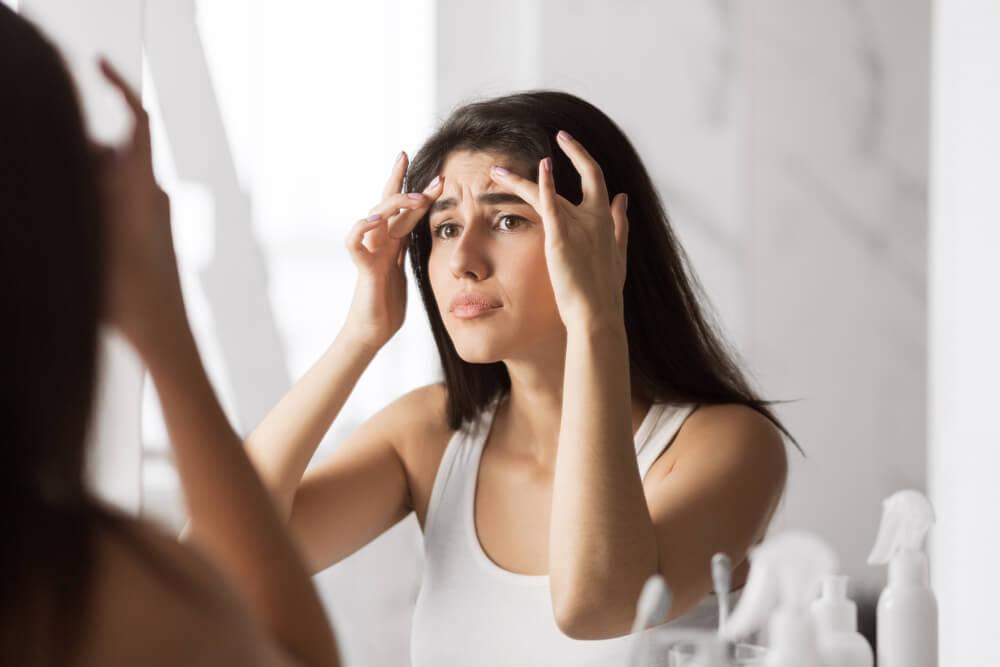
Disregarding the very few individuals who have succeed in keeping a healthy lifestyle in the time of quarantine, the majority of us have succumbed to the delicious, and very unhealthy junk food.
But what has it done to our skin and how?
Processed foods like chips, cookies, starches in the form of white bread, pasta and potatoes and sugary drinks increase your sugar levels. Under the increased wave of sugar, the body creates more insulin which increases the production of skin oils. This surplus of oils clogs the pores on the surface of your skin, which ultimately leads to acne. Burgers, pizza and other greasy products are also responsible for creating that extra sebum on your skin.
Fast food causes havoc in your hormones production, which, among other things can cause your immunity to lower, which, again, affects your skin. It is unable to defend the body against bacteria from the air, which also creates a fertile ground for various kinds of inflammation.
In addition, staying inside for a prolonged period of time can also affect the state of your skin. Sun rays have beneficial effects for your skin and your entire body. The lack of Vitamin D intake, which happens due to direct exposure to sunlight, also affects the immune response of your body. Calcitrol, which is the active form of Vitamin D, helps the growth of skin cells and repairs them. It speeds up metabolism and in that way stops your skin from aging.
What Can You Do to Stop Your Breakouts?
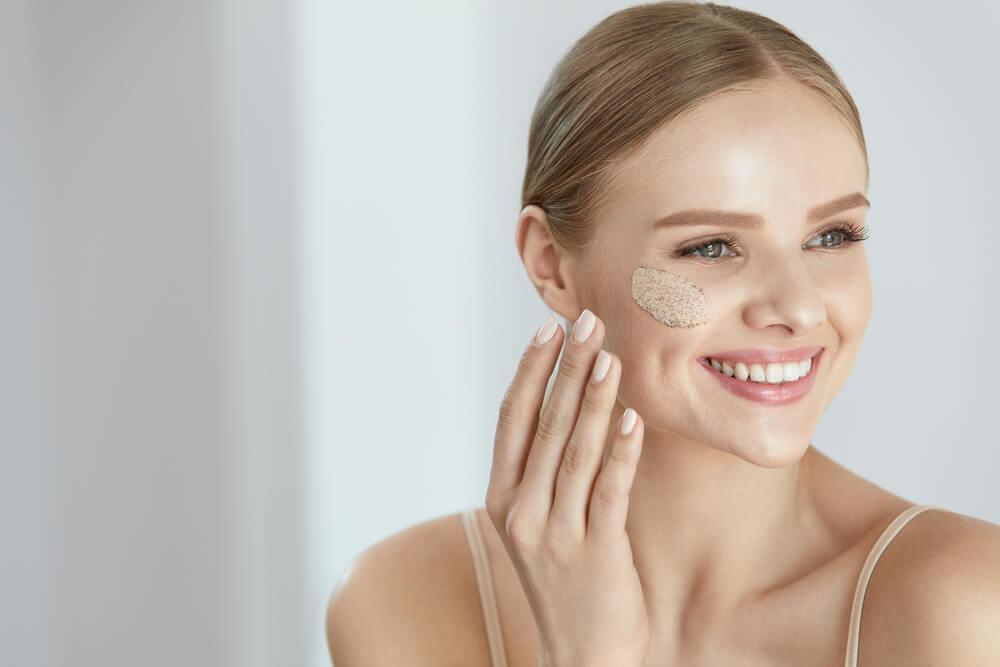
Yes, it is going to be hard. You are listening to awful statistics every day, it seems like there is no light at the end of the tunnel.
Well, not yet, anyway, but here’s hoping!
But it seems that social distancing is here to stay. You may be wondering every day how much longer you will have to go without seeing your friends and family properly.
All these things are a lot to handle, but there is a way out.
In order to solve your breakout problem, you have to start from finding the main source of it. You have to do the impossible, and that is to try and find better and healthier ways of dealing with situations that are the driving force behind your anxiety issues and stress. Once you find them, you have to stick to them, day by day.
Only by doing that will you change your automatic response to stress and break the vicious cycle. You have to beat the desire for junk and sugary food whenever you feel bad. But how?
Well, the first step is to keep a journal. Write down what you ate and how you felt after it. You will then see a pattern. The point of this is to consciously break the pattern. You will see what made you eat excessively in the first place. Once you see what the problem is, you will start your journey towards making better life choices. When you realize what the main stressors in your life are, you can actively try to solve them.
Of course, if you feel you are not ready to deal with the main stressors in your life, then try to deal with the breakout in a different way. It may not help you solve your inner torments, but it will certainly help you feel better about your face and body.
Use physical exfoliants
That way, you can get rid of the extra sebum and oil from the surface of your skin. You can buy them at the drug store or you can even make some DIY versions at home. All you need is coffee grounds, sugar or any type of nut. By exfoliating, you are not only removing the dirt that has clogged your pores and caused acne, but you are also improving the overall circulation of the skin.
Exfoliation also helps the other products you use penetrate deeper into the skin, making them more efficient. It is a familiar fact that exfoliation helps slow down aging. So, use that extra alone time you got to take care of your skin.
Use products for sensitive skin
After exfoliation, it is always good to apply some sort of moisturizer to soothe and nourish the skin. You should, however, be careful and make sure you only take products that say they’re for sensitive and acne-prone skin. So, nothing too oily or too heavy. Preferably organic, because some products can cause different types of problems, such as skin allergies and rash.

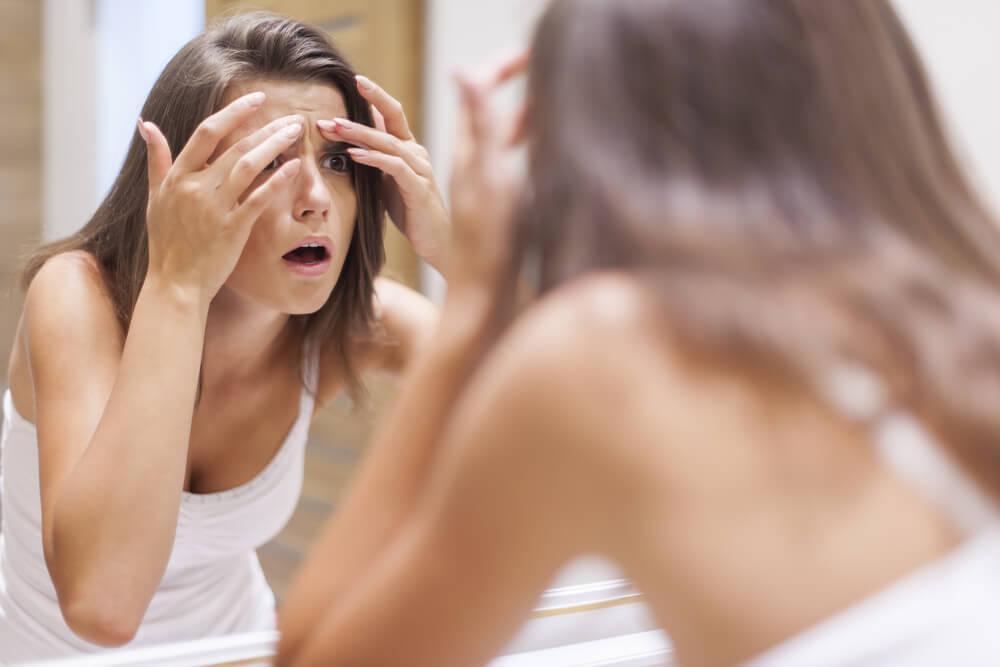

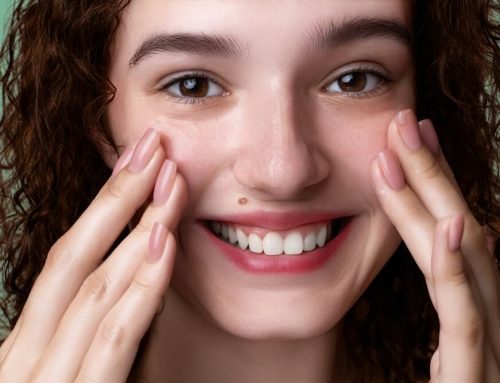
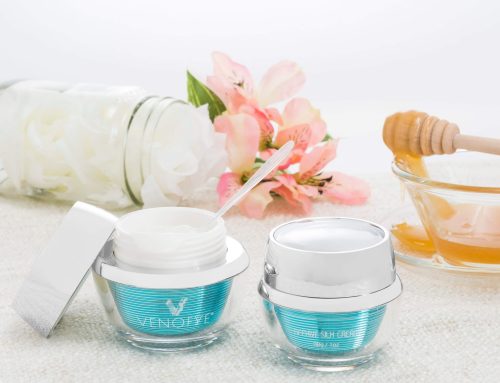

Leave A Comment